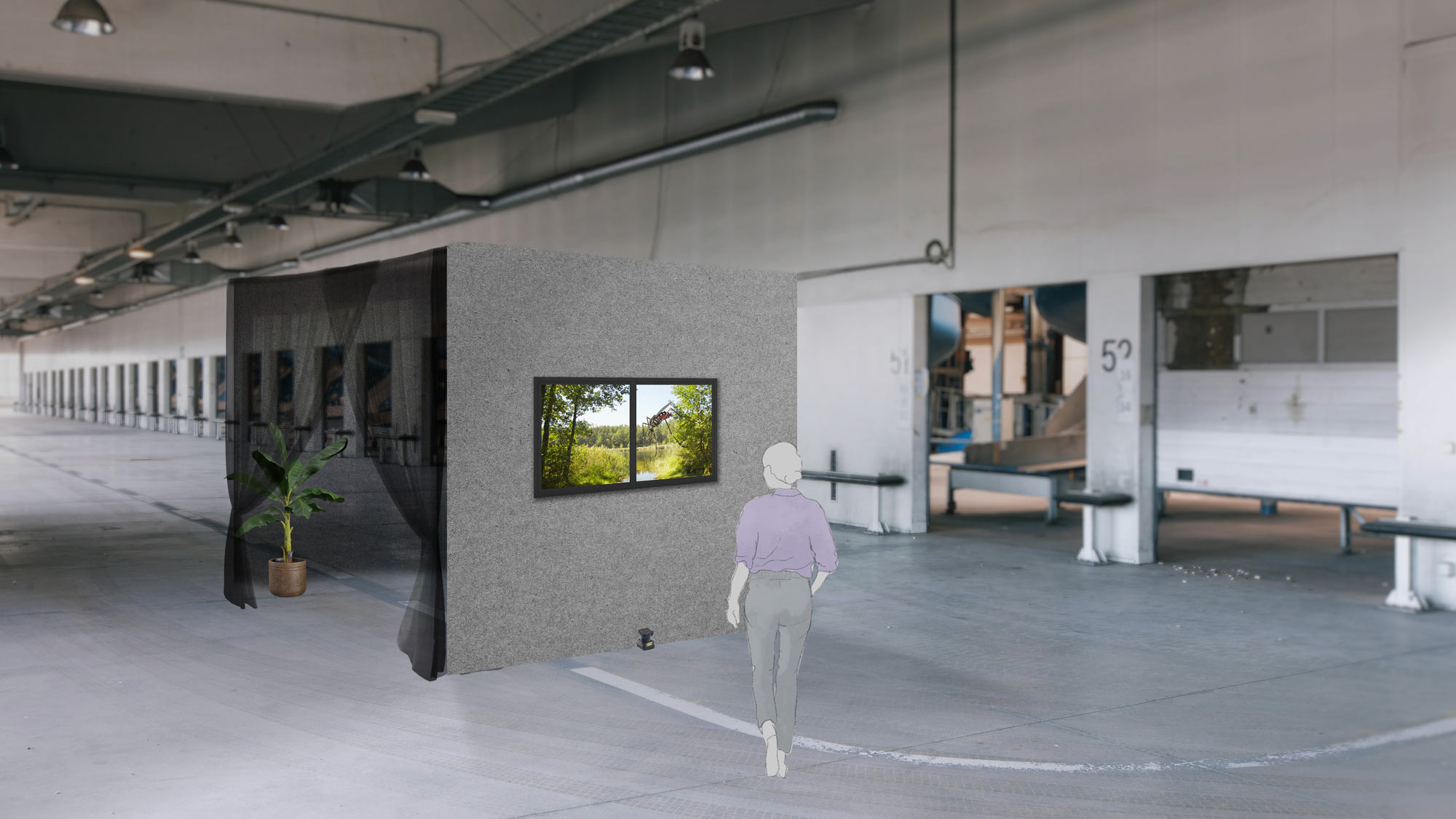How Can Immersive Gameplay Promote Solidary Behavior Towards Collective Action Problems?
Face the outbreak of a fictional mosquito pandemic in POSTCITY – with Buzz Swatters: Playful Pandemic Prevention, a collaboration between Godot and Ars Electronica Futurelab. To tackle the problem of infectious diseases, which requires collective action, you use a flyswatter as a voting tool to make decisions that encourage behavioral change for improved community health. Engage in immersive gameplay empowered by generative AI and sensor technology to see how your actions can prevent the disease and promote solidarity.
Buzz Swatters: Playful Pandemic Prevention investigates how immersive gameplay can promote solidarity in addressing the problem of infectious diseases, which requires collective action. This interactive installation by Godot and Ars Electronica Futurelab is designed to engage visitors in a fictional pandemic scenario where they navigate challenges to prevent the spread of a mosquito-borne disease by adopting behaviors that benefit community health.
Using a flyswatter as a voting tool, players participate in a democratic process to make decisions that encourage community well-being. The engaging gameplay and decision-making motivate participants to consider the common good, even when personal benefits are not immediately apparent. The installation employs cutting-edge technology, including generative AI and sensor technology, to measure and analyze when and how people feel inspired to change their behavior.
Credits
Godot Inc.: Ken Moriyama, Ryo Onizawa, Yusuke Takagi, Masashi Ohtani
Godot GmbH: Go Suzui, Johannes Heizer
Ars Electronica Futurelab: Denise Hirtenfelder, Susanne Kiesenhofer, Otto Naderer, Kerstin Blätterbinder, Roland Haring, Hideaki Ogawa

